
- •About the Authors
- •Dedication
- •Acknowledgments
- •Table of Contents
- •Introduction
- •About This Book
- •Conventions Used in This Book
- •Foolish Assumptions
- •How This Book Is Organized
- •Icons Used in This Book
- •Where to Go from Here
- •The French You’re Familiar With
- •Idioms and Popular Expressions
- •Key Parts of Speech
- •Cavorting with Verbs
- •Forming Sentences and Questions
- •The French Alphabet
- •Uttering Vowel and Consonant Sounds
- •Greetings: Formal and Friendly
- •Asking Questions to Get to Know People
- •Counting Your Lucky Stars: Numbers
- •Using the Calendar and Dates
- •Telling Time in French
- •Discussing Where You Live with the Verb “Habiter”
- •Discussing Daily Routine with Reflexive Verbs
- •Using Possessive Adjectives to Introduce Your Family Members
- •Basic Questions and Polite Expressions
- •Stating Your Preferences
- •Talking about Your Livelihood
- •Chatting about the Weather
- •Deciding to Keep in Touch
- •Getting Direction about Directions
- •Dining Out
- •Going to the Market
- •Going Shopping
- •Going Out with the Verb “Sortir”
- •Having Fun with the Verb “S’amuser”
- •Oh, the Places You’ll Go!
- •Making Plans with Friends
- •Making a Phone Call
- •Livin’ in the Past: Using the Past Tense
- •Playing Sports and Games
- •Going to the Beach
- •Setting Up Camp
- •Enjoying Quieter Pursuits
- •Where Do You Want to Go?
- •Getting Ready for Your Trip
- •Getting Current with Currency
- •Going to the Bank
- •Using Credit Cards and ATMs
- •Getting through the Airport
- •Navigating Buses, Trains, and Subways
- •Getting Around by Car
- •Finding Accommodations
- •Checking In to a Hotel
- •Checking Out of a Hotel
- •Getting Help Fast
- •Getting Medical Help
- •Handling Legal Matters
- •Label the Things in Your House
- •Write Your Shopping Lists in French
- •Listen to French Music
- •Watch French Movies
- •Tune in to TV5
- •Read French Publications
- •Take a Class
- •Join a French Association
- •Join an Online Chat or Pen Pal Forum
- •Using “Tu” When You Mean “Vous”
- •Using “Bonne nuit!” for Good-Bye
- •Using “Garçon” or “Porteur” to Address Service Staff
- •Saying “Je suis excité(e)” to Indicate Excitement
- •Saying “Je suis chaud(e)/froid(e)” to Say You’re Hot or Cold
- •Saying “Je suis plein/e” to Mean You’re Full
- •Using “de la glace” to Request Ice
- •Using “Je suis . . . ans” to Tell Your Age
- •Asking for Change with “J’ai besoin de change”
- •Using the Verb “Visiter” in Reference to People
- •“À mon avis”
- •“C’est pas vrai”
- •“Avec plaisir”
- •“C’est génial”
- •“À votre santé”
- •“À vos souhaits”
- •“Quelle horreur!”
- •“À bientôt”
- •“Passez-moi un coup de fil!”
- •“On y va!” or “Allons-y!”
- •“Je n’en sais rien”
- •“Je n’en reviens pas”
- •“Ça vaut la peine”
- •“C’est pas grave”
- •“N’importe”
- •“Tu cherches midi à 14h”
- •“Prenons un pot!”
- •Regular French Verbs
- •Auxiliary French Verbs
- •Track Listing
- •Customer Care
- •Index
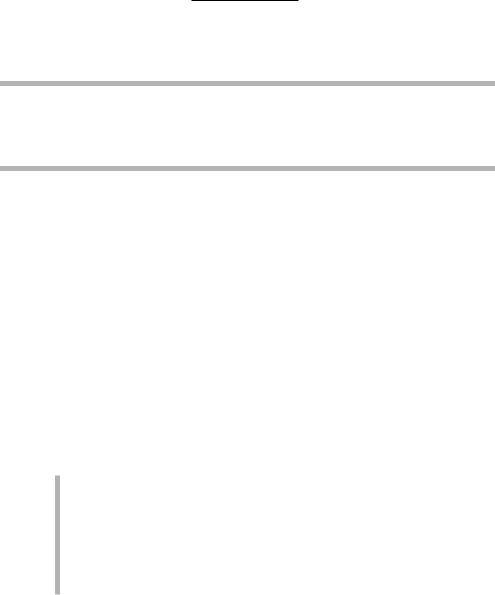
Chapter 17
Handling Emergencies
In This Chapter
Getting medical help
Asking for help from the police
It goes without saying that emergencies are no fun. They’re bad enough when you’re on home turf, but they’re even worse when you’re in a foreign environment. Hopefully, the only help you’ll ever need to ask for when
you’re traveling is where the nearest bus terminal is or what local cuisine your hosts would recommend. But if you do find yourself in an emergency situation, you can use the information and vocabulary in this chapter to get the help you need.
We’ve divided this chapter into two main sections: The first half deals with health problems, and the second half deals with legal matters.
Getting Help Fast
If you’re ever in an accident or have an emergency, the following key French phrases will alert those nearby and get you help right away:
À l’aide! Vite! (ah lehd! veet!) (Help! Fast!)
Au secours! (oh skoohr!) (Help!)
Au feu! (oh fuh!) (Fire!)
Arrêtez-le/la! (ah-reh-tey-luh/lah!) (Stop him/her!)
Au voleur! (oh voh-luhr!) (Catch the thief!)
Police! (poh-lees!) (Police!)
www.ATIBOOK.ir
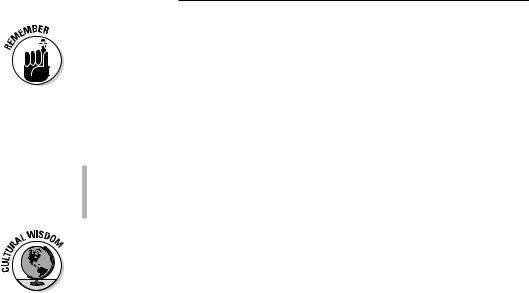
276 Part III: French on the Go
The emergency number for the entire European Union is 112. When you call this number, it connects you to the local first responders. Be sure you give them your location, the type of emergency, and your telephone number.
You may also find it helpful to have on hand specific emergency numbers for the country you’re visiting. In France, the numbers are as follows
(in the provinces, all the emergency numbers are on one page of the telephone book):
La police (lah poh-lees) (police): 17
L’ambulance (lahN-bew-lahNs) (ambulance): 15
Le feu (luh fuh) (fire): 18
The French are required by law to provide assistance in an emergeny. At the very least, they will stop, ask you what the problem is (if it’s not evident), and call or tell you which number to call for the particular type of emergency.
Chances are that one of the first responders will speak enough English to communicate with you directly or will call someone who does. Just in case, you can always ask for someone who speaks English by saying Est-ce qu’il y a quelqu’un qui parle anglais? (ehs-keel ee ah kehl-kuhN kee pahrl ahN-gleh?) (Is there someone who speaks English?)
Getting Medical Help
If you have a medical concern — you have une maladie (ewn mah-lah-dee) (an illness), for example — you may simply need to go chez le médecin (shey luh meyd-saN) (to the doctor’s office) or au cabinet médical (oh kah-bee-
neh mey-dee-kahl) (to the medical office). To do this, you’ll want to prendre rendez-vous (prahN-druh rahN-dey-vooh) (make an appointment). Although doctors usually have consultation hours for patients who don’t have appointments, you may have to wait a long time. (If you are too ill to go to the doctor, don’t worry. They can come to your hotel room or wherever
you’re staying.)
Your hotel can provide the addresses and phone numbers of local doctors or specialists. You can also get this information from a pharmacist. On Sundays, holidays, or after-hours, the local gendarmerie (zhahN-dahr-muh-ree) (police station) can also provide the number of le médecin de garde (luh meyd-saN duh gahrd) (the doctor on duty) or la pharmacie de garde (lah fahr-mah-see duh gahrd) (the 24-hour pharmacy).
www.ATIBOOK.ir
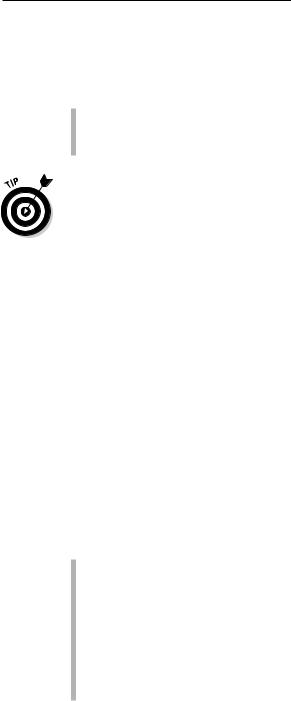
Chapter 17: Handling Emergencies 277
If you have been involved in an accident, you may need to go to un hôpital (uhN-noh-pee-tahl) (a hospital) or les urgences (f) (ley-zewr-zhahNs)
(the emergency room). In such an emergency, you can use either of the following phrases:
Il me faut un docteur. (eel muh foh tuhN dohk-tuhr.) (I need a doctor.)
Il lui faut une ambulance. (eel lwee foh-tewn ahN-bew-lahNs.) (He/ She needs an ambulance.)
Before leaving home, check with your insurance provider to see whether your policy covers emergencies or doctor visits abroad. If emergencies or medical treatments abroad aren’t covered, you may need to purchase coverage for the dates you’re traveling. If you need any sort of medical services while abroad, simply show your providers proof of your insurance in the United States. Also be sure to call your insurance company back home to explain what’s happening. Usually you’ll have to pay your bill (with your credit card) when you receive medical care, but your insurance company will reimburse you when you present the detailed bill back home. Remember to keep all your receipts and any feuilles de soins (fuhy duh swaN) (medical claim forms) that you sign.
Talking with doctors when you’re ill or injured
France has one of the best healthcare systems in the world. Rest assured that, whether you’re simply not feeling well and want to discuss your symptoms with un médecin/un docteur (uhN meyd-saN/uhN dohk-tuhr) (a doctor) or have been hurt in an accident, you’ll receive world-class care.
Describing what body part hurts
To describe what’s bothering you, you need to be able to convey to the doctor what body part hurts or feels uncomfortable:
la bouche (lah boohsh) (mouth)
le bras (luh brah) (arm)
la cheville (lah shuh-veey) (ankle)
les côtes (f.) (ley koht) (ribs)
le cou (luh kooh) (neck)
le doigt (luh dwah) (finger)
le dos (luh doh) (back)
www.ATIBOOK.ir
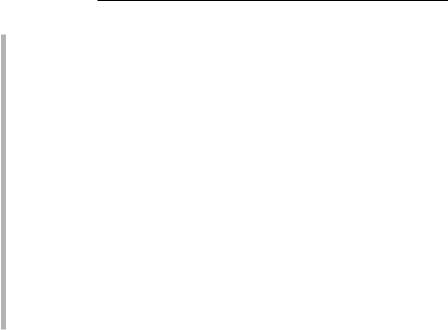
278 Part III: French on the Go
l’épaule (ley-pohl) (shoulder)
l’estomac/le ventre (leh-stoh-mah/luh vahN-truh) (stomach)
la figure (lah fee-gewr) (face)
le genou (luh zhuh-nooh) (knee)
la gorge (lah gohrzh) (throat)
la jambe (lah zhahNb) (leg)
la main (lah maN) (hand)
le nez (luh ney) (nose)
le pied (luh pyey) (foot)
la poitrine (lah pwah-treen) (chest)
l’oeil/les yeux (luhy/ley-zyuh) (eye/eyes)
l’oreille (loh-rehy) (ear)
l’orteil (lohr-tehy) (toe)
la tête (lah teht) (head)
To tell the doctor that something hurts, simply use the expression J’ai mal à (à la/au/aux). . . . (zhey mahl ah (ah lah/oh/oh. . . .) (My . . . hurts) and follow this with the body part. This construction uses the verb avoir (ah-vwahr) (to have) conjugated in the present (refer to Chapter 2 for the conjugation of this verb) plus the preposition à (ah). Whether you use à la/au/aux before the body part depends on the gender and number of the body part: If the body part is masculine singular, use au; if it is feminine singular, use à la, and if it’s masculine or feminine plural, use aux. Here are some examples:
J’ai mal au bras. (zhey mahl oh brah.) (My arm hurts.)
J’ai mal à la poitrine. (zhey mahl ah lah pwah-treen.) (My chest hurts.)
J’ai mal aux pieds. (zhey mahl oh pyeh.) (My feet hurt.)
You can also indicate what hurts on someone else by changing the subject pronoun at the beginning and conjugating the verb avoir appropriately, as shown in these examples:
Il a mal au dos. (eel ah mahl oh doh.) (His back hurts.)
Nous avons mal à la tete. (nooh-zah-vohN mahl ah lah teht.) (Our head hurts, We have a headache.)
Describing other symptoms
If you don’t feel well — you have a fever or feel nauseous or faint, for example — you’ll want to explain those symptoms to the doctor. In this case, you want to be able to tell the doctor I have a fever or I am nauseous. To
www.ATIBOOK.ir

Chapter 17: Handling Emergencies 279
create many of these expressions, you use the verb avoir, as explained in the preceding sections, but without the preposition à. You say, for example, j’ai (zhey) (I have) and follow it with the appropriate symptom. Following are some symptoms:
de la fièvre (duh lah fyeh-vruh) (a fever)
de la température (duh lah tahN-pey-rah-tuhr) (a temperature)
des problèmes à respirer (dey proh-blehm ah reh-spee-rey) (problems breathing)
de l’asthme (duh lah-smuh) (asthma)
une migraine (ewn mee-grehn) (a migraine)
un (gros) rhume (uhN [groh] rewm) (an [awful] cold)
la grippe (lah greep) (the flu)
le nez bouché (luh ney booh-shey) (a stuffy nose)
une toux (ewn tooh) (a cough)
une eruption/des taches rouges (ewn ey-rewp-syohN/dey tahsh roohzh) (a rash/red spots)
la diarrhée (lah dyah-rey) (diarrhea)
une coupure (ewn kooh-pewr) (a cut)
Keep in mind that the English translation may not actually include the verb to have, as these examples show:
J’ai de la nausée/J’ai mal au coeur. (zhey duh lah noh-zey/zhey mahl oh kuhr.) (I am nauseous.)
J’ai des vertiges. (zhey dey vehr-teezh.) (I am dizzy.)
Talkin’ the Talk
Julia has not been feeling well, so she calls her doctor’s office in order to make an appointment. She explains her symptoms to the receptionist. (Track 21)
Julia: Bonjour. C’est Julia Mills au téléphone. Est-ce que je pourrais prendre rendez-vous le plus tôt possible? bohN-zhoohr. seh zhew-lyah meels oh tey-ley-fohhn. ehs-kuh zhuh pooh-reh prahN-druh rahN-dey-vooh luh plew toh poh-see-bluh?
Hello. This is Julia Mills speaking. Could I have an appointment as soon as possible?
www.ATIBOOK.ir

280 Part III: French on the Go
La |
De quoi souffrez-vous? |
réceptionniste: |
duh kwah sooh-frey-vooh? |
|
What are you suffering from? |
Julia: |
Je suis tombée et maintenant j’ai très mal à la tête. |
|
zhuh swee tohN-bey ey maN-tuh-nahN zhey treh |
|
mahl ah lah teht. |
|
I fell and now I have a bad headache. |
La |
Avez-vous mal au coeur? |
réceptionniste: |
ah-vey-vooh mahl oh kuhr? |
|
Do you feel nauseous? |
Julia: |
Oui, je ne me sens pas très bien. |
|
wee, zhuh nuh muh sahN pah treh byahN. |
|
Yes, I don’t feel very well. |
La |
Pouvez-vous venir tout de suite? |
réceptionniste: |
pooh-vey-vooh vuh-neer tooht sweet? |
|
Can you come in right away? |
Julia: |
Oui, merci. À tout à l’heure. |
|
wee, mehr-see. ah tooh-tah luhr. |
|
Yes, thank you. See you shortly. |
|
|
Saying that you broke, sprained, twisted, or cut something
In French, to express that you have broken your arm, sprained or twisted your ankle, or cut a part of your body, you use reflexive verbs. (Check out the explanation and conjugation of such verbs in the present in Chapter 5. For more on the past tense, refer to Chapter 11.) To form the past tense of reflexive verbs, take the present tense conjugation of the auxiliary être (eh-truh) (to be) and follow it with a past participle. Here is an example of the verb se casser (suh kah-sey) (to break) in the passé composé (pah-sey kohN-poh-zey)
(the past tense [compound past]):
Je me suis cassé la jambe. (zhuh muh swee kah-sey lah zhahNb.) (I broke my leg.)
Tu t’es cassé la cheville. (tew teh kah-sey lah shuh-veey.) (You broke your ankle.)
Il/Elle s’est cassé la bras. (eel/ehl seh kah-sey lah brah.) (He/She broke his/her arm.)
Nous nous sommes cassé les orteils. (nooh nooh sohm kah-sey ley-zohr- tehy.) (We broke our toes.)
www.ATIBOOK.ir

Chapter 17: Handling Emergencies 281
Vous vous êtes cassé les doigts. (vooh vooh-zeht kah-sey ley dwah.) (You broke your fingers.)
Ils/Elles se sont cassé les côtes. (eel/ehl suh sohN kah-sey ley koht.) (They broke their ribs.)
Follow this pattern with other verbs and then add the part of the body that is affected. Here are examples using other verbs:
Je me suis foulé. . . . (zhuh muh swee fooh-ley. . . .) (I sprained. . . .)
Je me suis tordu. . . . (zhuh muh swee tohr-dew. . . .) (I twisted. . . .)
Je me suis coupé. . . . (zhuh muh swee kooh-pey. . . .) (I cut. . . .)
English uses the possessive adjectives with the parts of the body, but French uses the definite articles. For example, in English, you say I broke my foot. In French, je me suis cassé le pied (zhuh muh swee kah-sey luh pyey), which means I broke my foot but translates literally as I broke the foot to me.
Undergoing a medical examination
When you go to the doctor, he or she will undoubtedly ask you a few questions, such as Où avez-vous mal? (ooh ah-vey-vooh mahl?) (Where does it hurt?) or Quels sont vos symptômes? (kehl sohN voh saN-ptohm?) (What are your symptoms?). To answer these questions, use the terms and phrases provided in the preceding sections. Unless the problem is very obvious and easy-to-treat, other questions and procedures may be required, as the following sections explain.
If you’ve been involved in an accident and hurt yourself, a frequently used idiomatic expression is the question Qu’est-ce qui s’est passé? (kehs-kee seh pah-sey?) (What happened?). Another common expression is Ça fait mal! (sah feh mahl!) (That hurts!) You’ll want to memorize both of these.
Sharing information about existing conditions
The doctor may ask you questions, such as the following, to determine whether you have other conditions he or she needs to know about:
Êtes-vous cardiaque? (eht-vooh kahr-dyahk?) (Do you have a heart condition?)
Êtes-vous diabétique? (eht-vooh dee-ah-bey-teek?) (Are you a diabetic?)
Avez-vous de l’hypertension? (ah-vey-vooh duh lee-pehr-tahN- syohN?) (Do you have high-blood pressure?)
Êtes-vous allergique à. . .? (eht-vooh-zah-lehr-zheek ah . . .?) (Are you allergic to. . .?)
Prenez-vous des médicaments? (pruh-ney-vooh dey mey-dee-kah- mahN?) (Are you taking any medications?)
www.ATIBOOK.ir
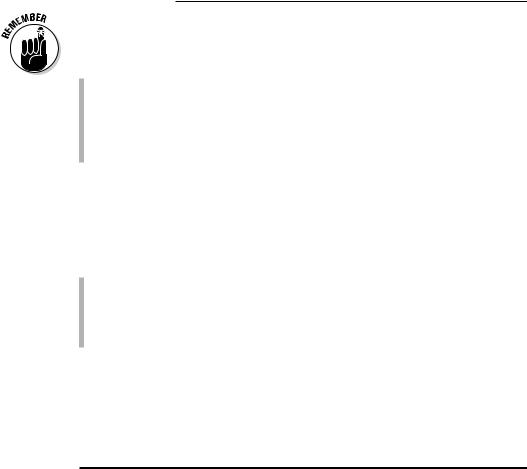
282 Part III: French on the Go
Of course, you can also offer this information before you’re asked, by using these phrases:
Je suis cardiaque. (zhuh swee kahr-dyahk.) (I have a heart condition.)
J’ai de l’hypertension. (zhey duh lee-pehr-tahN-syohN.) (I have high blood pressure.)
Je suis diabétique/allergique à . . . . (zhuh swee dee-ah-bey-teek/ ah-lehr-zheek ah. . . .) (I am diabetic/allergic to . . . .)
Talking about tests
After you tell the doctor what your concern is, he or she will examine you and may want to prendre votre pouls (prahN-druh vohh-truh poohl) (take your pulse) and ausculter votre coeur (oh-skewl-tey vohh-truh kuhr) (listen to your heart) or even do the following, as warranted:
prendre votre tension artérielle (prahN-druh vohh-truh tahN-syohN ahr-tey-ree-ehl) (to take your blood pressure)
faire une prise de sang (fehr ewn preez duh sahN) (to take, draw blood)
faire une radiographie (fehr ewn rah-dyoh-grah-fee) (to do an x-ray)
When the exam is complete, the doctor will tell you what you need to do. The doctor may prescrire des médicaments (preh-skreer dey mey-dee-kah-mahN) (prescribe medication), which you can get at a pharmacy.
Talkin’ the Talk
Julia arrives at the doctor’s office and is given an examination.
Le médecin: Depuis quand vous sentez-vous comme ça? duh-pwee kahN vooh sahN-tey-vooh kohm sah?
How long have you been feeling like this?
Julia: Depuis hier, quand je suis tombée. duh-pwee yehr, kahN zhuh swee tohN-bey.
Since yesterday, when I fell.
Le médecin: Avez-vous perdu l’appétit? ah-vey-vooh pehr-dew lah-pey-tee?
Have you lost your appetite?
Julia: Oui, et j’ai mal au coeur. wee, ey zhey mahl oh kuhr.
Yes, and I feel nauseous.
www.ATIBOOK.ir
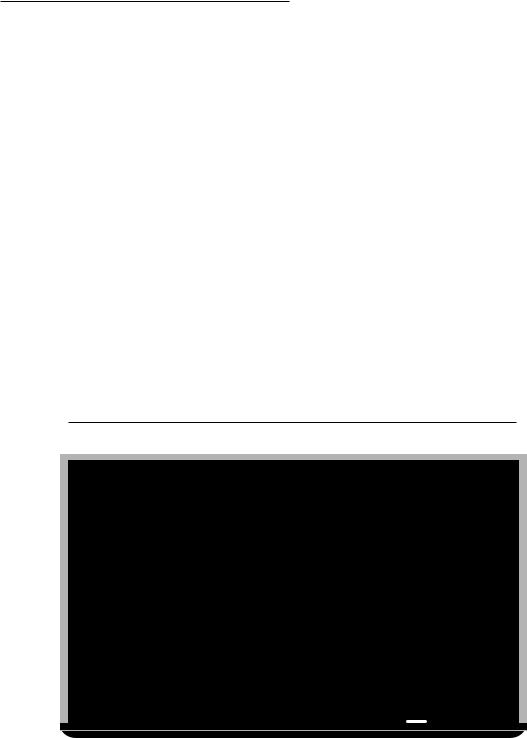
Chapter 17: Handling Emergencies 283
Le médecin: Vous avez une légère commotion cérébrale. Reposezvous bien pendant quelques jours. Est-ce que vous prenez des médicaments?
vooh-zah-vey ewn ley-zhehr koh-moh-syohN sey-rey- brahl. ruh-poh-zey-vooh byaN pahN-dahN kehl-kuh zhoohr. ehs-kuh vooh pruh-ney dey mey-dee-kah-mahN?
You have a light concussion. Take it very easy for a few days. Do you take any medication?
Julia: Non. Mais je suis allergique à l’aspirine. nohN. meh zhuh swee-zah-lehr-zheek ah lah-spee-reen.
No. But I am allergic to aspirin.
Le médecin: Bon. Voilà une ordonnance . . . en cas de douleur.
Prenez un comprimé toutes les quatre heures et revenez dans trois jours.
bohN. vwah-lah ewn ohr-doh-nahNs . . . ahN kah duh dooh-luhr. pruh-ney uhN kohN-pree-mey tooht ley kah-truhr ey ruh-vuh-ney dahN trwah zhoohr.
Good. Here is a prescription . . . in case of pain. Take one pill every four hours and come back in three days.
Julia: Merci, docteur. Au revoir. mehr-see, dohk-tuhr. ohr-vwahr.
Thank you, doctor. Good-bye.
Words to Know
je suis tombé(e) |
zhuh swee tohN-bey |
I fell |
|
se sentir |
suh sahN-teer |
to feel |
|
depuis quand/ |
duh-pwee kahN/duh- |
since when/since |
|
depuis hier |
pwee yehr |
yesterday |
|
perdre |
pehr-druh |
to lose |
|
une commotion |
ewn koh-moh-syohN |
a concussion |
|
cérébrale |
sey-rey-brahl |
|
|
pendant quelques |
pahN-dahN kehl-kuh |
for a few days |
|
jours |
zhoohr |
|
|
revenir |
ruh-vuh-neer |
to come back |
|
www.ATIBOOK.ir

284 Part III: French on the Go
To form the past tense in French, you need the auxiliary verbs avoir or être plus the past participle, as in j’ai eu (zhey ew) (I had). Chapter 11 covers the past tense.
Going to a pharmacy for minor ailments and medications
The French pharmacists’ duties far surpass those of the pharmacists in the U.S, so the pharmacy is often the first place you go in France for minor medical concerns. In addition to filling des ordonnances (dey-zohr-doh-nahNs) (prescriptions), the highly trained pharmacien/pharmacienne (fahr-mah- syaN/fahr-mah-syehn) (pharmacist) can dress wounds; give advice on how to remedy a bad cold, migraines, sunburn, and so on; and give nutritional advice as well. French pharmacies are easily recognizable by the big green cross on them.
When you go to a pharmacist for medical care, you can ask Pourriez-vous me donner un conseil? (pooh-ree-ey-vooh muh dohh-ney uhN kohN-sehy) (Could you give me some advice?). If the problem is more serious and requires further medical attention, the pharmacist will refer you to the doctors in the area.
In addition, unlike in the U.S., les médicaments (ley mey-dee-kah-mahN) (medication) in France is sold only in pharmacies, not in supermarkets or anywhere else. The following vocabulary can help you request the medication you need:
les antibiotiques (ley-zahN-tee-bee-oh-teek) (antibiotics)
l’aspirine (lah-spee-reen) (aspirin)
les pastilles (ley pah-steey) (lozenges)
le sirop (pour la toux) (luh see-roh [poohr lah tooh]) (syrup
[cough syrup])
les vitamines (ley vee-tah-meen) (vitamins)
If you need medication, provide the generic name of the medication to the pharmacist because the name brand may not exist in the country where you are traveling. For example, you can say acétaminophène (ah-sey-tah-mee-noh- fehn) (acetaminophen) or ibuprofène (ee-bew-proh-fehn) (ibuprophen).
Even though you probably won’t need a fully stocked trousse de secours (troohs duh skoohr) (first-aid kit), you can also get some basic items like de l’alcool (duh lahl-kohhl) ([rubbing] alcohol) and des pensements (dey pahN- suh-mahN) (bandages) at pharmacies, too.
www.ATIBOOK.ir
